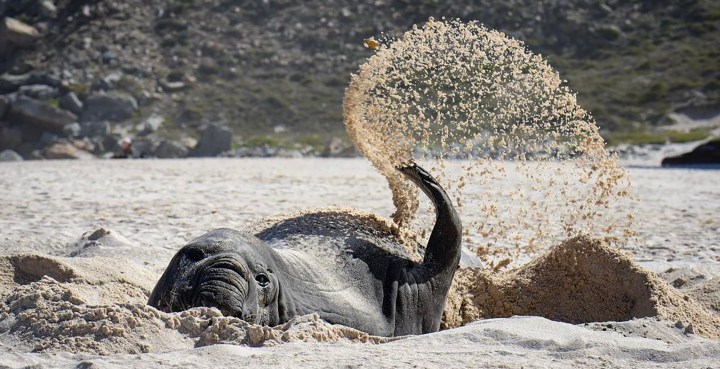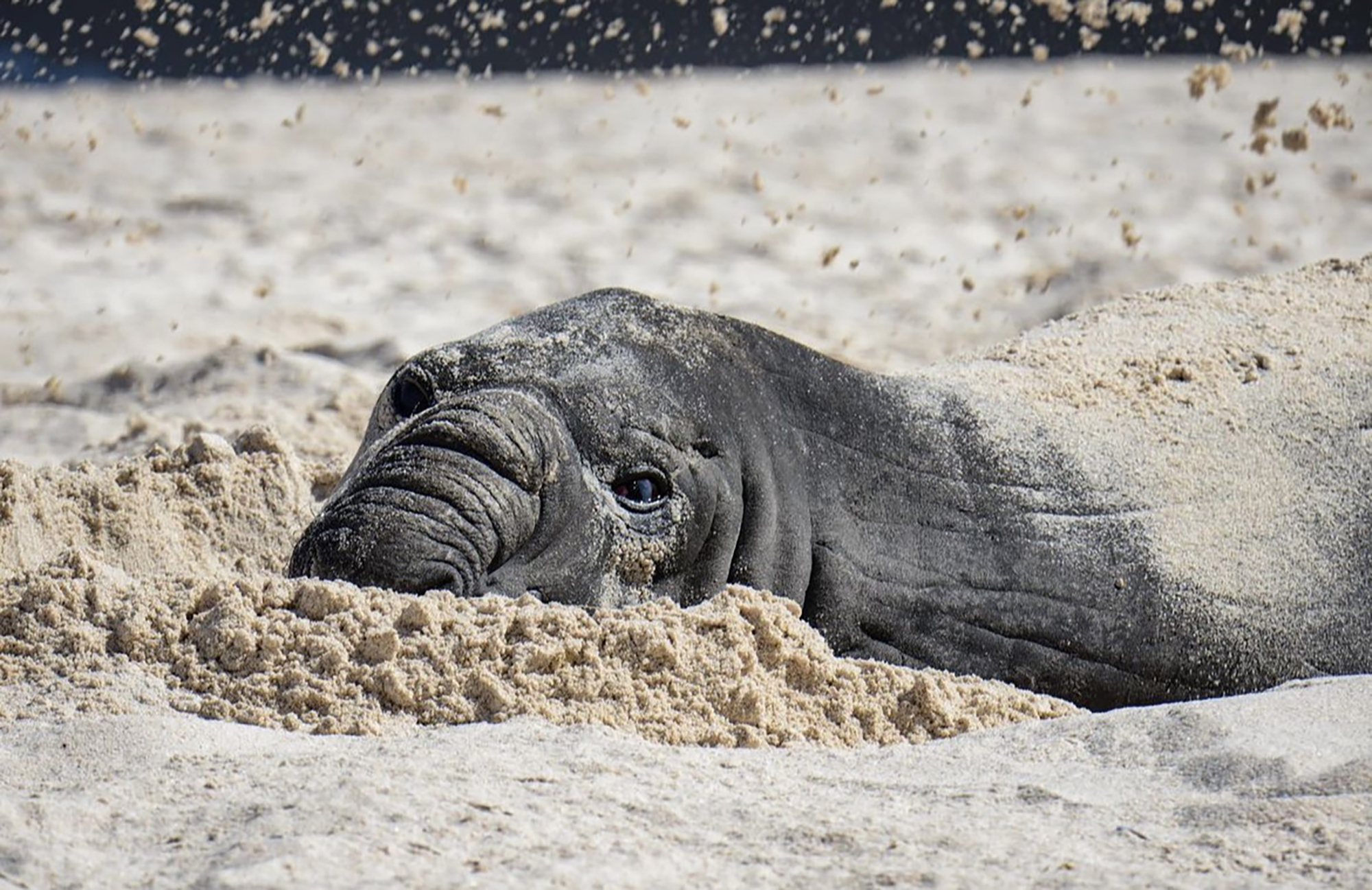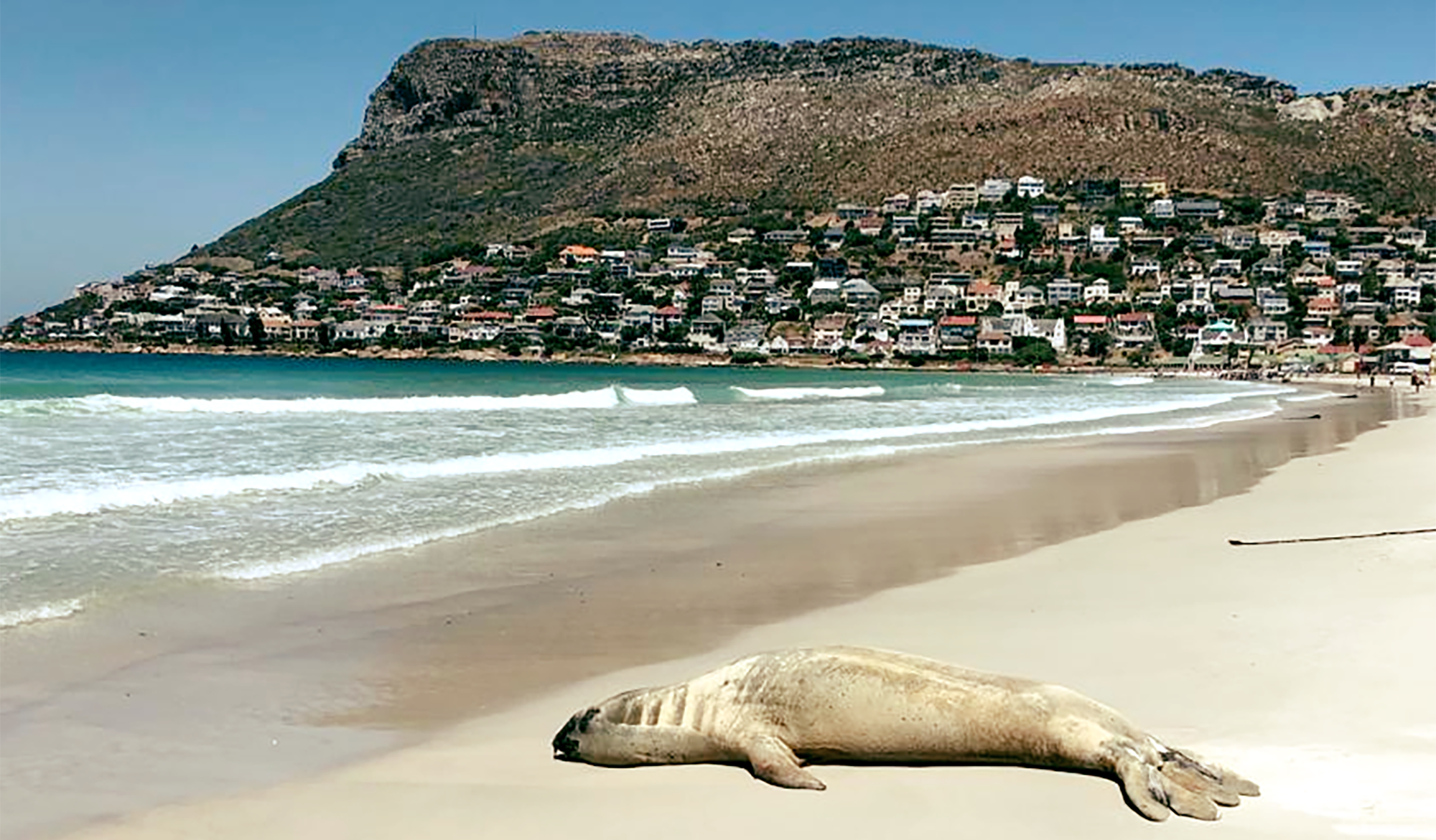HAULING OUT
Antarctic wanderer Buffel, the southern elephant seal, gives Cape Town the annual seal of approval

A southern elephant seal known for his annual return trips to Cape Town has once again made the Mother City’s beaches his summer holiday home. But he is not the only Antarctic wanderer soaking up the sun along South Africa’s coastline.
In 2016 a sub-adult southern elephant seal was tagged in Buffelsbaai, in the Western Cape. He was named Buffel, after the location of his first appearance on South African shores. While it was a relatively rare sighting, no one could imagine the level of local fame that this now 10-year-old 1 tonne, 4m seal would gain in the years to follow.
He has been coming ashore on the coast around Cape Town for a number of years and has become a local legend. In the years following his first sighting, he has returned to shore on Duiker Island off Hout Bay, Fish Hoek beach and most recently Diaz Beach in Cape Point Nature Reserve in March. He has been photographed from the air and the beach, from boats and from within the surf and while hauling his massive frame back into the ocean.
“It is relatively unusual to see elephant seals, but we have individuals who come ashore every year,” says Dr Greg Hofmeyr, a marine mammal biologist and curator at the Port Elizabeth Museum.
“For Buffel, as an individual, it is not particularly unusual,” he adds.
Elephant seals are found in the Southern Ocean and spend the majority of their lives at sea. While they usually haul out on sub-Antarctic islands or the Antarctic coast, “every year on all of the southern continents there are vagrant seals and some of these vagrant seals are animals that return repeatedly”, says Hofmeyr.
“Elephant seals are animals of habit and they are philopatric, meaning they return to the same location they have been before,” says Hofmeyr.
So if a seal has come ashore before to moult successfully, it is likely to do so again. For Buffel, South Africa is a country worth returning to.
But, Buffel is just one of a number of southern elephant seals that have come ashore recently.
“There is another adult male called Salty,” says Hofmeyr. “Salty first came ashore as a sub-adult at a similar age to Buffel in the Salt River near Plettenberg Bay and since then he has hauled out at Marion Island in the Southern Ocean and for the past two years he has chosen to haul out and moult on the west coast.”
Last week, another adult male came ashore in East London and yet another was sighted in Struisbaai the previous month.
“These guys are regulars and they do seem to be coming ashore more frequently,” says Hofmeyr, without elaborating why this would be so.

Southern elephant seals spend the majority of their lives at sea in the Southern Ocean, with an average breath of 40 minutes to hunt squid. (Photo: Danel Wentzel)

Southern elephant seals spend the majority of their lives at sea in the Southern Ocean. (Photo: Danel Wentzel)
Visit Daily Maverick’s home page for more news, analysis and investigations
Haul out
There are several types of haul-outs, says Hofmeyr. Elephant seals are born ashore, they come ashore for the breeding and pupping season, and for the annual moult and the youngsters come ashore for what is suggested to be resting haul-outs.
Buffel has hauled out for his annual moult.
Unlike fur seals that moult while at sea, elephant seals do not moult continuously throughout the year.
Every year during the summer and autumn months, elephant seals come ashore to shed their fur coats in big sections like parchment, says Hofmeyr.
“The reason they do that is that they are deep divers and live in a very cold environment so they try to restrict energy expenditure and cannot sustain moulting,” he adds.
The moulting process usually lasts for about a month and they do not hunt during that period, instead relying on their layer of blubber to sustain them.
“In good condition, their layer of blubber will comprise about a third of their body weight,” says Hofmeyr.
Seal of approval
“We would advise keeping your distance if you come across an elephant seal; 10 metres is the minimum but if the seal notices you, you are too close,” says Hofmeyr.
“Do not disrupt the seal at all; there is a video clip of someone throwing buckets of water on poor Buffel and he is roaring in rage,” says Hofmeyr, “I suppose they feel they are doing a great job but he doesn’t need that.”
“He is not stranded, he has come ashore to moult and he has done it many, many times.”
So keep your distance, do not disturb the resting animal and then contact the relevant local authority and inform them that an elephant seal is ashore on the beach. This will allow professionals to evaluate if any intervention is required.
The southern and Eastern Cape stranding hotline number that coordinates strandings and can direct you to the correct authority is 071 724-2122. This hotline can be called if any dolphin, whale, seal or turtle — dead or alive — is sighted.
“The best thing you can do is send us a photograph so we can predict and plan what sort of response is required,” says Hofmeyr. DM/OBP


















Comments - Please login in order to comment.